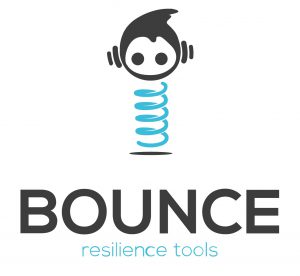Brussels, March 2018 — Around 150 participants attended the final conference of the BOUNCE project in Brussels on 14 March, including the project partners, representatives from the 10 pilot cities, the newly-skilled trainers and experts. After two years and a wide range of activities implemented through the project, they took a look back at the common actions, discussed the perspectives of external experts on the work accomplished, and reflected on how to further develop the BOUNCE resilience tools.
Fostering resilience amongst youngsters
The BOUNCE project, which was coordinated by the Belgian Ministry of the Interior and supported by the project partners the consultancy firm RadarAdvies (NE), the children and youth organisation Arktos vzw (BE), Ghent University (BE) and Efus, is a key European project in the field of preventing radicalisation and violent extremism. Its unique approach is to foster resilience amongst youngsters by supporting their self-confidence, self-awareness and self-effectiveness. The project has developed three training tools:
- BOUNCE YOUNG, a resilience training programme for youngsters
- BOUNCE UP, a train-the-trainer tool for frontline workers
- BOUNCE ALONG, an awareness-raising tool for parents and frontline workers.
Recently, the project implemented BOUNCE UP trainings in 10 pilot cities – Liege and Leuven (BE), Augsburg and Düsseldorf (DE), Bordeaux and Montreuil (FR), Amsterdam and Groningen (NE) and Malmö and Landskrona (SE) –, thus forming a network of more than 100 trainers across Europe.
The training tools are available for download free of charge at www.bounce-resilience-tools.eu
Among the speakers of the conference were Jan Jambon, Belgian Deputy Prime Minister and Minister for Security and Home Affairs; Ilona von Bethlenfalvy, Policy Officer on Prevention and Radicalisation / European Commission, Directorate General Migration & Home Affairs; Maarten van de Donk, Senior Advisor Radicalisation Awareness Network, Zubeda Limbada, Founder of Connect Futures, and Elizabeth Johnston, Executive Director of Efus. They discussed the importance of resilience-building, an approach introducing early interventions to the field of radicalisation prevention which is not yet sufficiently appreciated at national, European and international policy levels although it has proved a promising strategy to prevent polarisation, radicalisation and all forms of extremism.
Building trust and local partnerships
Efus also organised a workshop session titled “Key challenges around the local prevention of radicalisation”, which focused on particularly challenging aspects of local prevention strategies, such as how to work with non-institutional actors, as well as impact assessment and political communication on the issue. Experienced practitioners – Oscar Negredo Carrillo, Security Advisor of the municipality of L’Hospitalet (SP), and Hadelin Feront, Head of Radicalisation Prevention at Brussel’s asbl Bravvo – shared their experience and debated with the audience. They stressed that trust between municipal administrations, law enforcement agencies and local communities – especially marginalised groups – is a key condition to successful prevention but needs to be established in the long term and must include cooperation outside the field of radicalisation prevention. Moreover, they highlighted the important role of schools in rolling out activities to foster resilience and the need to accompany principals and teachers by expert professionals at municipal level.
On the conference’s closing panel, representatives from all ten pilot cities discussed the current and future uses of the BOUNCE training tools in their cities. While some addressed challenges as to finding sufficient resources and time to implement the intense BOUNCE training programmes, others are looking for practical ways to use BOUNCE, for example when the municipality organises group trips for local youth clubs. Moreover, they stressed that exchanges between BOUNCE trainers at the European level should be strengthened – a demand that the project team takes up with the new project website launched in March 2018, which includes an internal forum for the trainers.
In order to ensure the continuity of the project, Efus will support the implementation of the BOUNCE training tools in other European cities as partner of a project proposal submitted by the Belgian Ministry of the Interior to the European Commission. This new project will seek to enable further local authorities to benefit from the BOUNCE capacity-building resources.





